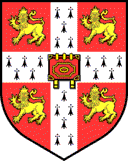Subject + to be + going to + infinitive
We use the future with “GOING TO” to talk about plans
POSITIVE FORM
| Subject | Verb To be | Going to | Infinitive |
| I | Am | Going to | dance |
| He / She / It | Is | Study | |
| We / You / They | Are | Go shopping |
Examples:
- Maria’s going to travel this holiday.
- They’re going to go to a very expensive restaurant.
- I’m going to come home late.
NEGATIVE FORM
| Subject | Verb To be + not | Going to | Infinitive |
| I | Am not | Going to | Clean |
| He / She / It | Is not (isn’t) | Cook | |
| We / You / They | Are not (aren’t) | travel |
- I’m not going to go to the party.
- Juan isn’t going to work today.
- They aren’t going to stay at that hotel.
QUESTION FORM
| Question Word | Verb To Be | Subject | Going to | Infinitive |
| What | Am not | I | Going to | Do |
| Where | Is not (isn’t) | He / She / It | Go | |
| —————– | Are not (aren’t) | We / You / They | travel |
Ejemplos:
- What are you going to do later?
- What is she going to cook?
- Are they going to attend the meeting?
- Where is Maria going to study?
Short answers are with the to be verb
- Yes, I am – Yes, you are – No, he isn’t – No, they aren’t ETC
Errores típicos
NO USAR el do/does (para preguntas) & el don’t y doesn’t (para negativos). NO SE USAN porque usamos el verbo to be.
- INCORRECTO: I don’t going to study.
- CORRECTO: I‘m not going to study.
- INCORRECTO: Where do you going to go?
- CORRECTO: Where are you going to go?
No os olvideis de poner el verbo TO BE
- INCORRECTO: Juan going to buy beer.
- CORRECTO: Juan is going to buy beer.





























